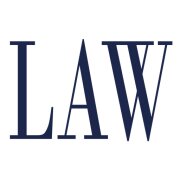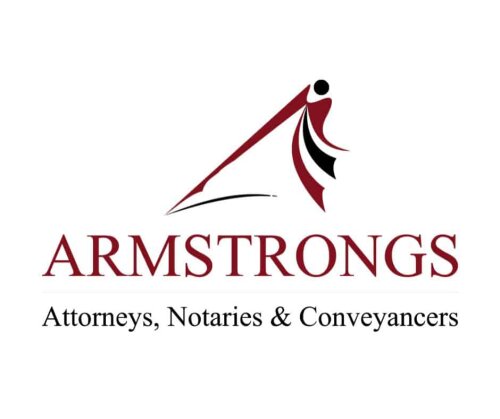Best Mining Law Lawyers in Gaborone
Share your needs with us, get contacted by law firms.
Free. Takes 2 min.
List of the best lawyers in Gaborone, Botswana
About Mining Law in Gaborone, Botswana
Mining Law in Gaborone, Botswana is an area of legal practice that deals with the exploration, extraction, processing, and commercialization of mineral resources within the country. As Botswana is renowned for its rich deposits of diamonds and other minerals, mining law plays a crucial role in regulating the industry to balance economic development with environmental protection and the rights of local communities. The legal framework governing mining in Botswana is mainly set out in the Mines and Minerals Act, which stipulates how mineral rights are granted, transferred, and managed.
Why You May Need a Lawyer
Mining operations involve complex regulatory requirements and significant financial investments. As a result, individuals and companies may need legal assistance for several reasons, including applying for mining licenses, negotiating mining agreements, ensuring regulatory compliance, resolving disputes over land or mineral rights, addressing environmental concerns, and managing issues that arise during the course of mining activities. Lawyers specializing in mining law can help ensure that your interests are protected, your operations remain compliant, and any disputes are efficiently resolved.
Local Laws Overview
In Botswana, mining law is mainly regulated through the Mines and Minerals Act, Cap 66:01. The Act governs the granting and management of mineral concessions such as prospecting licenses, retention licenses, and mining licenses. Key aspects include:
- The state owns all mineral rights, and individuals or companies must obtain proper licenses to prospect for and mine minerals.
- Mining activities require environmental impact assessments and compliance with environmental laws.
- There are specific procedures for application, renewal, transfer, and cancellation of mineral rights.
- Mining companies must adhere to local content rules and support the development of the host communities.
- Taxation, royalties, and revenue sharing are strictly provided for under local laws.
- Foreign investors are encouraged, subject to compliance with Botswana law and local partnership policies.
Frequently Asked Questions
What is required to obtain a mining license in Botswana?
Applicants must submit a detailed proposal and meet criteria relating to technical and financial capabilities. The process includes application fees, submission of an environmental impact statement, and governmental vetting.
Can foreign companies own mining rights in Botswana?
Yes, foreign companies can own mining rights but must adhere to Botswana's legal requirements and may be subject to special regulations or partnership obligations with local entities.
What taxes or royalties do mining companies have to pay?
Mining companies must pay royalties based on gross sales, corporate taxes, and may be liable for additional levies depending on the mineral and scale of operation.
Do all mining activities require environmental approval?
Yes. An environmental impact assessment and compliance certificate are required before commencing any mining activity.
How is land ownership related to mineral rights?
All mineral rights are vested in the state, regardless of who owns the surface land. Surface landowners may be entitled to compensation if their land is used for mining.
What are the main regulatory bodies for mining in Botswana?
The Department of Mines is the primary regulator, supported by the Ministry of Minerals and Energy and the Environmental Protection Agency.
Are there restrictions on the transfer of mining licenses?
Transfers of licenses require governmental approval. Applicants must show the transferee can fulfill all legal and operational requirements.
What happens in the case of a dispute over mining rights?
Disputes are generally resolved through the courts or, in some cases, by arbitration or special tribunals, depending on the nature of the disagreement.
How can communities affected by mining operations seek redress?
Affected communities can seek compensation, environmental restoration, and enforcement of social responsibility commitments through legal channels or by filing grievances with regulatory agencies.
Can small-scale miners get legal support?
Yes. There are provisions in the law and organizations offering support to small-scale miners. Legal counsel helps navigate application processes and compliance requirements.
Additional Resources
For those seeking more information or support related to mining law in Gaborone, Botswana, consider the following resources:
- Department of Mines - The main regulator overseeing mining licenses, compliance, and safety.
- Ministry of Minerals and Energy - Policy setting and oversight of the mining sector.
- Botswana Chamber of Mines - Industry representation, networking, and advocacy.
- Botswana Unified Revenue Service - Advice on mining taxes, royalties, and related obligations.
- Environmental Protection Agency - Guidance on environmental compliance and permitting.
- Legal Aid Botswana - Some legal support services for qualifying individuals.
Next Steps
If you require legal assistance with mining law in Gaborone, Botswana, consider the following steps:
- Clearly identify your legal needs, whether it is licensing, dispute resolution, compliance, or negotiations.
- Gather all relevant documents such as permits, contracts, correspondence, or policies.
- Consult with a legal practitioner who specializes in mining law or has experience with Botswana's mining sector.
- Reach out to regulatory bodies for official guidance or clarification before commencing any mining activity.
- Ensure ongoing compliance with all regulatory and environmental requirements to avoid penalties or license revocation.
Early legal consultation can prevent costly mistakes. Engage qualified legal support to protect your interests and ensure your mining activities are fully compliant with Botswana's laws.
Lawzana helps you find the best lawyers and law firms in Gaborone through a curated and pre-screened list of qualified legal professionals. Our platform offers rankings and detailed profiles of attorneys and law firms, allowing you to compare based on practice areas, including Mining Law, experience, and client feedback.
Each profile includes a description of the firm's areas of practice, client reviews, team members and partners, year of establishment, spoken languages, office locations, contact information, social media presence, and any published articles or resources. Most firms on our platform speak English and are experienced in both local and international legal matters.
Get a quote from top-rated law firms in Gaborone, Botswana — quickly, securely, and without unnecessary hassle.
Disclaimer:
The information provided on this page is for general informational purposes only and does not constitute legal advice. While we strive to ensure the accuracy and relevance of the content, legal information may change over time, and interpretations of the law can vary. You should always consult with a qualified legal professional for advice specific to your situation.
We disclaim all liability for actions taken or not taken based on the content of this page. If you believe any information is incorrect or outdated, please contact us, and we will review and update it where appropriate.













